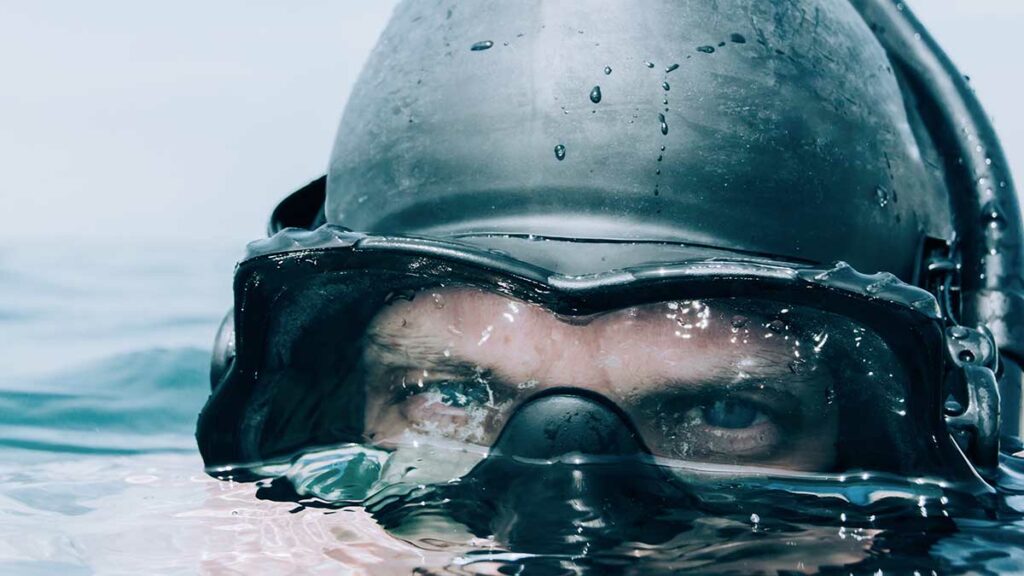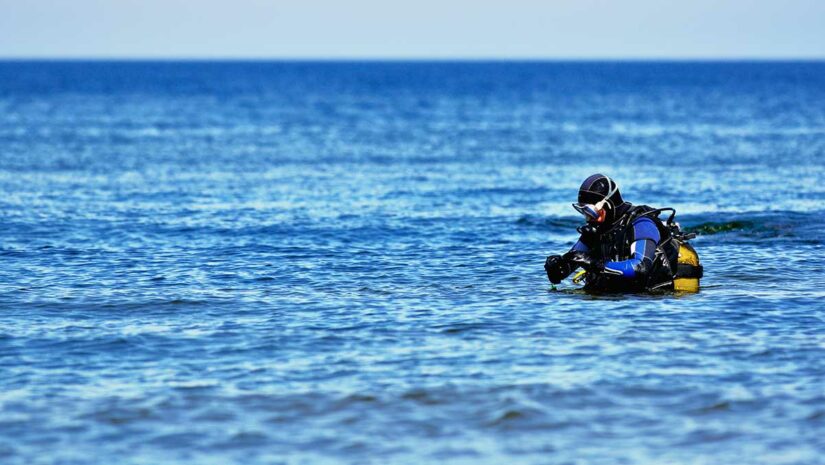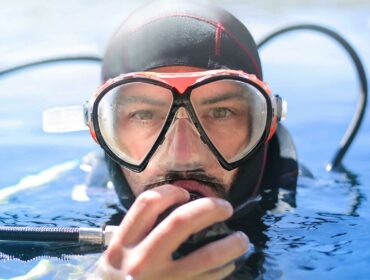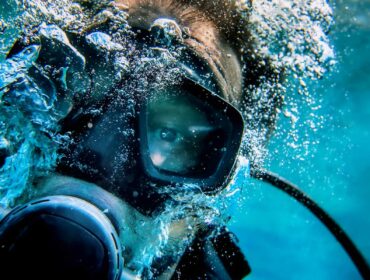If you’re new to diving, chances are good you have been warned about all the potential ailments and injuries that can come with your newfound hobby. While decompression sickness probably registers the highest on scuba newbies’ radar as something to avoid, a far more common condition — but every bit as serious — is hypothermia. But can hypothermia occur in warmer ocean water? Is warm water hypothermia even possible? Well to answer this question, we must first begin with trying to understand what exactly hypothermia is.
What is hypothermia?
Hypothermia is the condition in which the body’s core temperature drops below that required for normal metabolism and body functions. When the body is exposed to cold, and it cannot replenish the heat being lost from the core body temperature through internal mechanisms, hypothermia is said to set in.
Have you ever noticed yourself start shivering, or feeling cold while scuba diving even in warm tropical waters? The water that we dive in is almost always at a lesser temperature than that of our bodies; and water conducts/draws away heat from a divers body almost 25 times more efficiently than air, which is why , even after a short dive in seemly mild water temperatures, it is possible to get mild hypothermia.
Some medical conditions can cause or accelerate hypothermia; the ambient temperature does not have to be especially low. Since virtually all diving takes place in waters that are below our body’s natural temperature, developing hypothermia in warm water can happen much faster than you’d expect.
The NOAA Diving Manual discusses this subject in and states:
“Divers also have to be wary of hypothermia in warm environments. A phenomenon called ‘warm water hypothermia’ can occur even in the tropics, especially during long dives and repetitive dives made without adequate re-warming between dives. In warm water hypothermia, long slow cooling can take place in water temperatures as warm as 82 degrees F – 91 degrees F. Although warm water hypothermia is not easily recognized as its cold water counterpart, it definitely warrants attention.”
In a nutshell, you can get hypothermia when your core body temperature drops below normal rate and your body’s heat generation abilities cannot keep up to the heat loss. Any time a body is in an environment that is colder than 98.6 F (37 C), you lose heat. And since the heat loss in water is 25 times faster than to air, this may occur fairly quickly. Mild hypothermia takes place while the core temp is still above 90F (32 C). Severe Hypothermia sets in when the core temp drops below 90F.

Why are Divers at Risk?
Water is far more efficient at warming and cooling us than air — you can lose body heat underwater up to 26 times faster than on land! Because of this, divers’ bodies are particularly at risk of becoming hypothermic if they do not wear proper exposure protection. Just as you wouldn’t head to the slopes without snow pants even on an exceptionally sunny day, nor should you proceed on a dive without at least a skin in warm, tropical locations. Although it is somewhat rare to develop symptoms of severe hypothermia while diving in relatively warm water, mild symptoms are not at all uncommon. It is important that divers are aware of their body’s condition and prepared to call the dive if necessary.
How Do I Know if I’m Suffering from Hypothermia?
The symptoms of mild hypothermia tend to be fairly general. Confusion is a common symptom, difficulty with motor control, and constant shivering as well. Many divers who experience these symptoms fail to realize that they are signs of hypothermia and may continue diving, expecting their symptoms will pass. It is important to surface in a quick but safe manner if you are experiencing any symptoms at all.
Many divers who begin experiencing hypothermia in warm water don’t even notice until they surface and get back on the boat. It is important to be aware of your physical and mental condition while diving; don’t take any risks. If you are experiencing any symptoms that could be hypothermia-related, return to the surface, dry off, and insulate yourself to increase your body’s temperature.
Warm-water vs cold-water hypothermia
Beyond a certain point, there is no symptomatic difference between warm water and cold water hypothermia. The only difference is the time before the onset of symptoms, a diver facing warm water hypothermia may feel fatigue, loss of motivation and impaired mental ability, before feeling the actual symptoms of Hypothermia, where violent shivering sets in and loss of coordination.
Conclusion
Divers must always remain vigilant to these signs of shivering, wear adequate exposure protection gear and exit the water immediately to re-warm if you or your buddy begins to feel cold on the dive. Ensure that you spend a sufficient amount of time between dives warming up even beyond your specified surface interval times especially if you felt cold on your first dive, as often rapid consecutive dives can lead to hypothermia.




